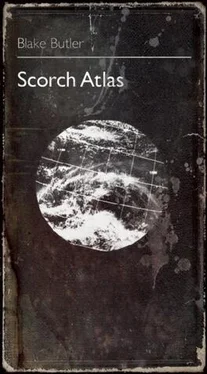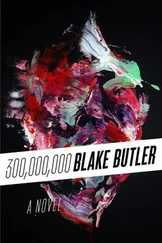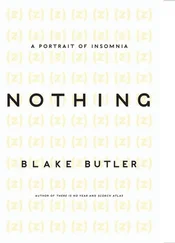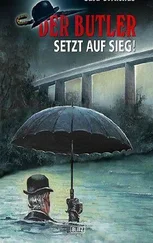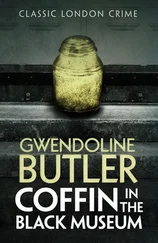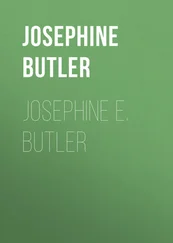Before his exit, the son had taken a picture of himself every morning upon waking. He kept the pictures in sequential order, hidden, on the hard drive of his computer. He wanted to one day be able to look at the files and observe his catalog of aging. He’d never told anyone about this practice. The pictures were still there, saved, somehow preserved amidst the heat.
If the mother had known about the pictures, she would have kept them hidden, for herself . She would have noticed how, in the last several months of photographing, something began to creep into the film. How in the air around her son’s head grew a small buzzing, aligned in the photo as a slight blur. How over the last weeks before the son’s death the photos had begun to grow so ruined you could not see most of his face — how the film grew embedded with fields of bright botched color: shades of pink and brown and orange and green — and somewhere inside that, strange — his eyes.
The daughter had begun to convince herself that this was all her fault. First, she’d made the house swell, though not enough. She’d recognized a short strain of curse in her surroundings that continued to grow worse as she got older. Everyone she liked at school got sick or moved away. When she touched the television screen it shocked her. When she picked out a loaf of bread at the grocery, she always found a spore of mold inside. She always bumped her head against things. She was always itching. She couldn’t sleep.
But it was much worse than all of that. She’d hurt a man once, without intention. He was crossing the street and she looked at him and he smiled. A car hit him from the side. He fell on the gravel and spurted blood. He looked her directly in the eyes. She still had the dress she’d worn that day, with the spattering across it. She’d buried it in the transom of her closet, under the old dolls and books and raincoats.
Another time she’d been staring at an airplane and it fell right out of the sky. Just like that. She didn’t know what was wrong with her but there was something. She could feel a bump deep inside her forehead. A murmur in her hair. She knew the house kept burning because she was in it. Because it wanted her made gone.
And now, because she hadn’t listened, her brother turned to char. Who knew what else she had made happen. Who knew what else she would destroy. She tried to explain these things but no one would listen. She felt older than she looked.
In the night, with her parents elsewhere, she sat in her closet with the old dress and pressed the man’s brown stains against her face.
I know you’re awake.
— I’m not awake.
— You’re talking.
— That’s someone other talking for me.
— How cute. How clever.
— ( sounds of snoring )
— Quite. Well, you enjoy. ( moves past the bed into the bathroom; sound of rummaging through drawers )
— What’s going on?
— I’m looking for my lighter. You’ll forget me in a minute.
— Your lighter? You bought cigarettes?
— I didn’t.
— Give me one.
— I said I didn’t buy any cigarettes.
— Then why the lighter?
— ( long pause ) It was Dad’s. I want to hold it. I need something. You’re not you.
— You expect me to believe that? Why not just say it? I’m not what?
— ( slick metal sounds of an old hinge clicking ) Here it is. ( closes the drawer; moves through the bedroom back to the door again; glares at the bed ) Night.
— What’s the black crap you’ve got all over you? ___?
— ( door opens and door closes )
— ( does not say goodnight )
Her left hand’s thumb flicked the metal wheel that ground and spit a flame into the nothing — the yellow neon tremble of fluid burning — the shimmer of incendiary air suffused with fume. The mother’s hand trembled just slightly. She’d always had small fingers, good for sewing, good for cleaning out one’s ears.
The metal lighter really had belonged once to her father; in fact, he’d meant to take it with him. Eight years old, there, at the coffin, she’d slipped her hand into the gone man’s pockets, not understanding, maybe after money, maybe scent, the teeth, some something to remember . The lifeless head’s lips grinned — he could feel her rummaging around him, tickled. She’d found the lighter there over his heart, soft-brushed and gleaming, full of fluid. No one was looking. She’d hid it in her best dress, cold against her skin. The lighter was always cold.
Sometimes now, thirty years later, she still felt the soft slur of something strumming when she smoked, as if it were her father’s smoky dead breath that ballooned behind her cheeks. She couldn’t even remember how he died.
The mother held the lighted lighter in her son’s room again, inhaling the scum of the blackened walls with the tobacco smoke, the outlined spot on the floor where once there’d been a bed, where once on that bed she’d sat reading the child stories till he was old enough to read them back, cut from her voice.
The mother took the lighter to the window. She went to press her face against the glass, to butt it hard and feel the impact, then remembered how the glass was no longer there — how it’d been cracked by heat or kicked out by men in flame-retardant coats to let water through. She felt her head go on out into the evening, into the cupped light overhead. There was no moon or streetlamps glowing, no trees still lit up in tall torches as when the backyard had caught ignition. Just long black and stagnant fields of air, the wind settled, calm again, under glass.
The mother felt the lighter’s metal getting warm. She kept her fingers close against it. She sniffed the air inside the room that’d burned her son. She leaned against the window’s empty frame, the air so arid she could smell its quiver, a flux between here and there, surrounded.
That night, instead of burning, the first rain in many months and miles poured on the night. The water poured as something above had come undone, a full urn busted and expulsing. It graced the nearby empty creek beds and the dead lawns, the ratty sprats of trampled fields. It pocked the long face of so much dried mud, in which so many other things were buried. It slicked the roofs from which now many had jumped, or dreamt it, or wished they really would.
The rain did not announce itself. It came.
It came through the open skylight window and drummed the father, who hadn’t slept yet but still had dreams: of a warm house he’d envisioned somewhere. He let the water spot his forehead, soak the pillow. He lay blinkless and unmoving while it glossed his cracked lips and tongue. He drank. He drank — and then he sat up, sat on the mattress and thought of words he’d never thought before.
The water found the daughter in her bedroom, inside the swelling house, the old cells bumping, crimping the indenture of the closet where piled neck-deep with old clothes she’d begun to rise off of the floor.
The water filtered through the dead son. It soaked through the warped lid of his casket — through his desiccating skin into his bones and through his dry veins. It filled the soil with mumble as from insects, as the stirrings of the house.
It drenched the mother in her nightgown, through the already flooded gutters in the street. From nowhere and everywhere at once. It washed the soot clean from the mother’s cheeks. It slapped her hair and drenched the ashes. It ran in forked ways down her scratched skin — speaking— that this rain is some beginning — that this rain might never cease .
GRAVEL
The day the sky rained gravel I watched it drum my father’s car. A Corvette he’d spent years rebuilding. He liked to watch his face gleam in the hood. He kissed the key before ignition. He read the owner’s manual aloud. When he lost the strength to stand he left the car uncovered in the street. Each morning I took a Polaroid and we tacked it to his headboard — a panorama of slow ruin. After four years, the car’s wear matched the sallow skin of his sick head. He had me bring the smell of the old leather to him in plastic bags. He’d always said something was coming. He’d always said the world had no idea. Imagine him in bed on that gray day. Imagine him wishing he could drive at 80 through the downpour down to where the tide had begun to expel foam. Where the whales washed up half-rotten, their huge, soft heads brained by the hailing stone. The gravel piled up on the front lawn, covering the pets we’d already buried, one each year. I’d never been good at keeping things alive. On my own headboard I cut notches. The Corvette’s paint came off in yellow divots, my father’s hair loose on the pillow. His teeth were weak. He sucked a bottle. Soon the car’s roof caved. Imagine my father’s baby chipped to bits. Shit falling out of orbit. The scream of others down the street. Imagine the soapy loam covering the beach sand where for years he and I had fried. Where with our skin still raw and itching we’d fit our church clothes over our swimsuits. If I’d listened, in those soft days, I would have taken other pictures to show my children ( the children I’ll never have ). I’d flip through the photo album backwards and watch my father’s head grow full again — and me smaller, brighter eyed, head shook clean of later days. Imagine the endless pummel of our sore home. The sound of the bigger buildings bowing. How my father insisted I help him to the kitchen so he could see out to the street — where the car sat six feet under, smothered. The stink of the ocean through the glass. Imagine us there together. Imagine the billow of his eye. Imagine the way the hail slowed to let the sun through before it really started coming down.
Читать дальше
